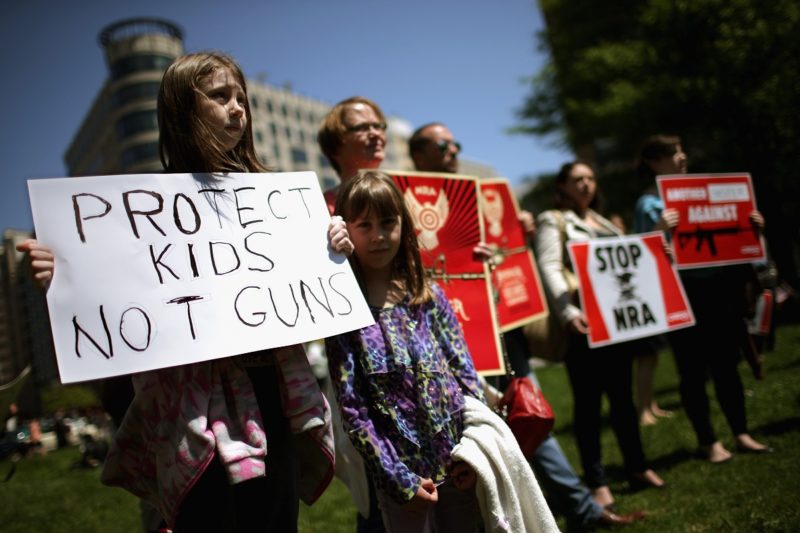Gavel Drop: Supreme Court Refuses Prayer and Gun Cases
The high court continues to endorse school prayer, but won't weigh in on two state bans of semiautomatic rifles and open carrying of weapons.

Welcome to Gavel Drop, our roundup of legal news, headlines, and head-shaking moments in the courts.
The U.S. Supreme Court decided to not take a Texas case challenging a public school policy that allowed for opening its meetings with student prayer. A lower court ruled that even though the Constitution isn’t keen on state-sponsored prayer, what the Texas school board was doing was totally cool.
The Gorsuch Court passed on taking two gun-rights cases in its last conference: one Maryland case banning semi-automatic rifles and large-capacity magazines for ammunition, and another challenging Florida’s ban on the open carrying of guns in public. Both decisions upheld the state bans. We’re not generally optimistic when it comes to the Court, but this is good news. So we’ll take it.
A lawsuit challenging a Frederick County, Maryland, school policy permitting students to use the bathroom that aligns with their gender identity was dropped. Why? Because the 15-year-old plaintiff experienced stress and bullying associated with the litigation, according to her attorney. We here at #TeamLegal are opposed to bullying of any kind, and we urge the plaintiff and those with similar stances to consider the bullying that trans people endure for just trying to use the bathroom.
In Illinois, Palatine Township High School District 211 is facing another lawsuit from a transgender student who just wants to use the bathroom and be left alone. Eighteen-year-old Nova Maday filed a lawsuit in Cook County Circuit Court, claiming that the school district’s discriminatory policy has damaged her mental health and her grades. This lawsuit comes on the heels of a 2015 Department of Education decision that found the school district’s policy violated Title IX after a 2013 case of a transgender student who filed a complaint with the Department of Education’s Office for Civil Rights, alleging that the district’s refusal to grant her access to the girls’ locker room was discriminatory.
César Cuauhtémoc García Hernández writes in the New York Times that Immigration and Custom Enforcement’s policy of arresting people in courthouses not only breaks with tradition, but has led to undocumented immigrants avoiding courthouses at all costs, even if that means avoiding testifying at trials or seeking protection orders if they are victims of domestic violence.
The University of South Florida (USF) is facing its third lawsuit alleging mismanagement of sexual assault allegations on campus. Plaintiff Samantha Garrett alleges that a USF investigation concluded that she had been sexual assaulted, but the school nonetheless allowed her attacker to remain in her doctoral program and in close proximity to Garrett—including attending the same classes and departmental events.
An anti-abortion student group at Miami University of Ohio is fighting for the right to install an exhibit of several hundred crosses that are supposed to represent “lives lost to abortion” without having to post warning signs about the exhibit and identify its sponsors. The student group claims that these requirements violate its freedom of speech.
A bunch of anti-choicers have filed a lawsuit in Sangamon County Circuit Court, Illinois. They challenge a law that expands the use of taxpayer dollars to pay for abortions under certain circumstances. Plaintiffs are represented by the uber-conservative nonprofit law firm Thomas More Society.
